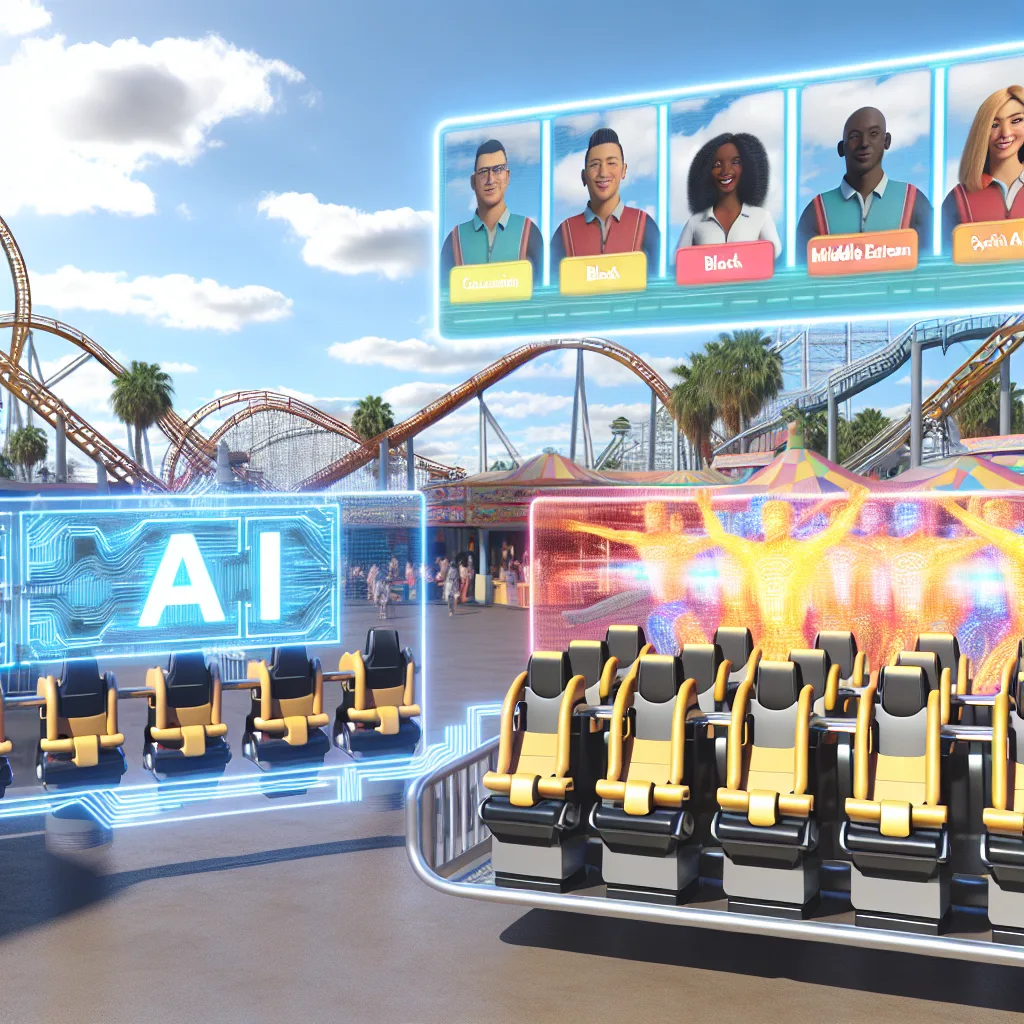Exploring how AI could change ride operations and queue management in theme parks
If you’ve ever stood in a long line at your favorite theme park and wondered, “Why isn’t AI running these rides to speed things up?” you’re not alone. The idea that AI theme parks could replace humans for managing rides and queues is pretty intriguing. Let’s take a friendly, down-to-earth look at what this might mean and why it isn’t as simple as flipping a switch.
Why Think About AI Theme Parks?
When you visit a theme park, the goal is usually to have fun, with as little waiting as possible. AI theme parks promise a future where rides operate with precision timing and lines are managed efficiently, cutting wait times and smoothing out crowds. Imagine an AI system that adjusts ride times dynamically based on how many people are in line or analyzes guest movement to spread visitors evenly across the park.
Standout benefits could include improved queue management and faster ride operations compared to the human-operated systems today. AI could use real-time data to make split-second decisions and communicate directly with ride hardware.
Safety First: Where Humans Still Matter
But here’s the catch: safety. Ride operations come with enormous responsibilities. While AI is great at crunching data and running processes, theme parks deal with unpredictable human behavior and complex mechanical systems that might require on-the-spot judgment calls. For now, humans remain essential for routine safety checks and reacting to emergencies.
Even the most advanced AI can struggle with the subtle, real-time decisions a trained human operator makes. These include responding to unusual rider behavior or unexpected mechanical issues. According to The International Association of Amusement Parks and Attractions (IAAPA), safety regulations and standards in the amusement industry prioritize human oversight to ensure guest well-being.
What About Customer Experience?
Part of the magic of a theme park visit is personal interaction — the pre-ride excitement, friendly operators, and staff helping guests with a smile. Fully automating this experience might risk making it feel cold or impersonal. AI can assist, sure, but customers often value that human connection.
Of course, AI could still play a huge role behind the scenes. For example, advanced queue management systems already use AI to predict busy times and reroute guests to less crowded areas. Some parks use AI-powered apps to give visitors real-time ride updates and personalized recommendations. Disney, for example, has implemented technology to optimize guest flow and enhance experience (Disney Tech).
Future Prospects for AI Theme Parks
While completely AI-operated theme parks may be a way off, AI will likely continue to support human staff rather than replace them entirely. Robot assistants, smart scheduling, and predictive analytics can all improve the theme park experience.
In summary, AI theme parks could make rides run quicker and queues shorter, but safety and the human touch keep actual humans firmly in the loop. It’s an exciting blend of technology and tradition, where AI helps make magical memories even better without taking over the wheel entirely.
If you’re curious about AI’s broader impact on entertainment and operations, companies like Siemens are exploring AI in automated systems across industries, which could eventually influence theme parks too.
Thanks for sticking with me through this peek at AI theme parks. Next time you’re at a park, maybe you’ll notice the subtle ways AI is already working behind the scenes!
